新概念英语-第2册Lesson 4 An exciting trip课件(共32张PPT)
文档属性
| 名称 | 新概念英语-第2册Lesson 4 An exciting trip课件(共32张PPT) | 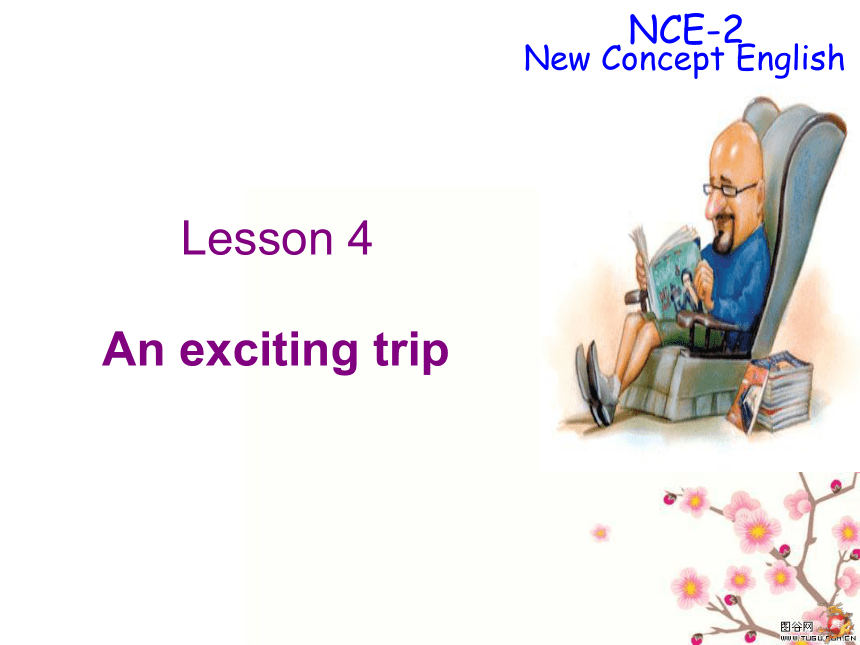 | |
| 格式 | ppt | ||
| 文件大小 | 815.5KB | ||
| 资源类型 | 教案 | ||
| 版本资源 | 新概念英语 | ||
| 科目 | 英语 | ||
| 更新时间 | 2023-10-07 09:51:38 | ||
图片预览

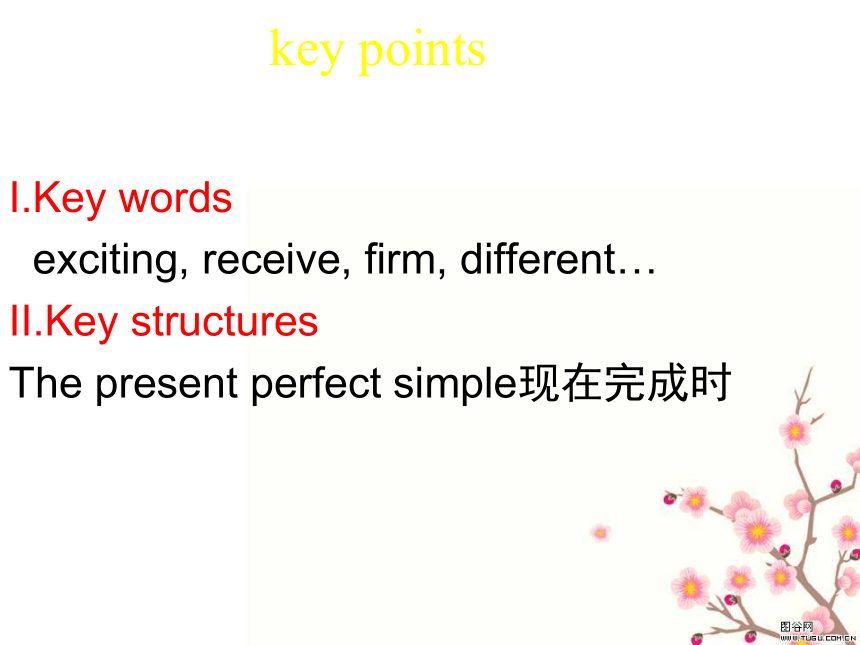
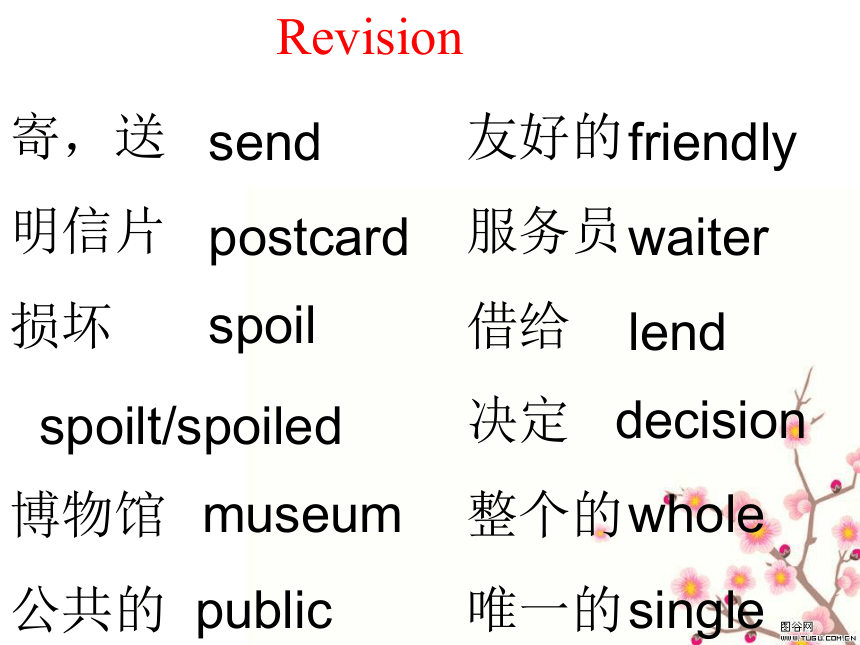
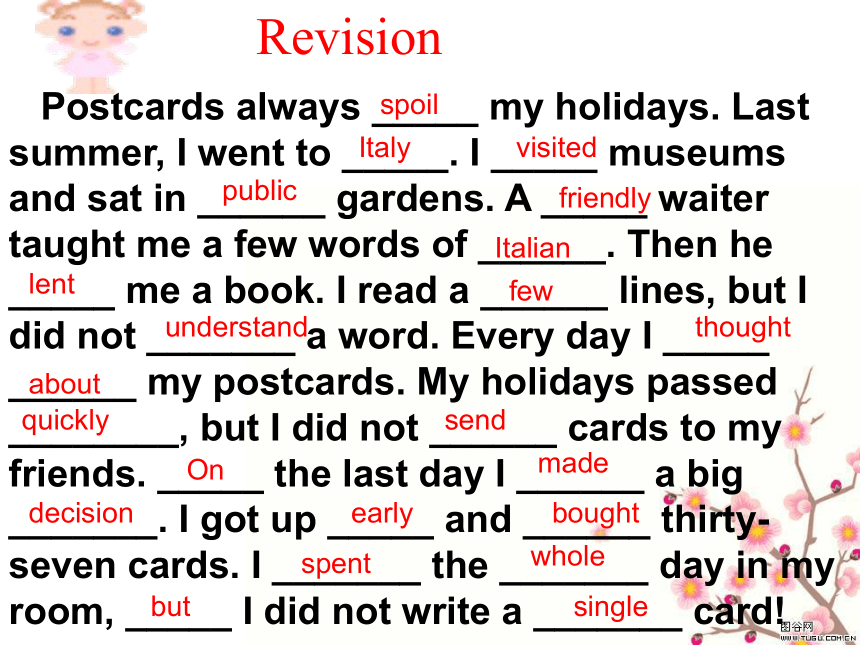
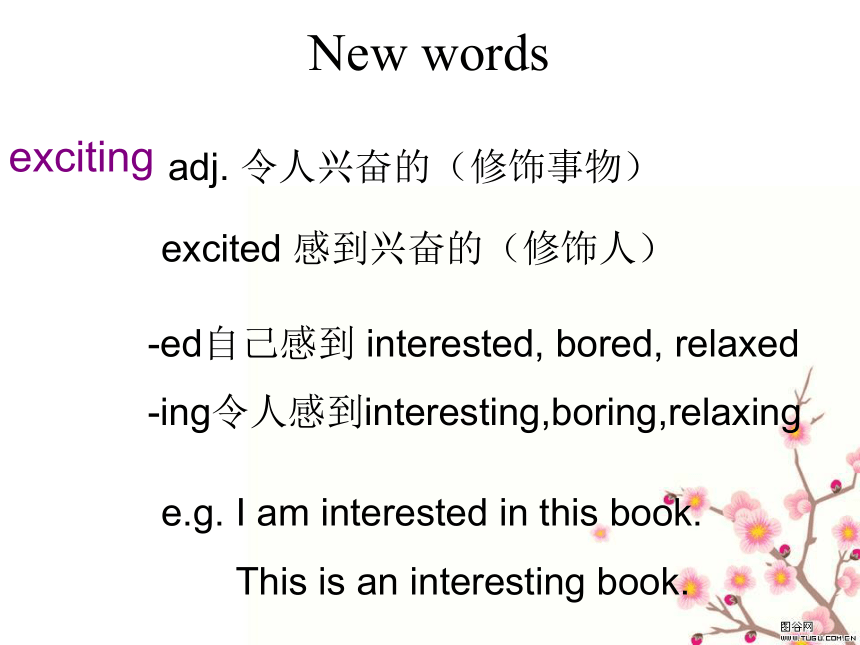
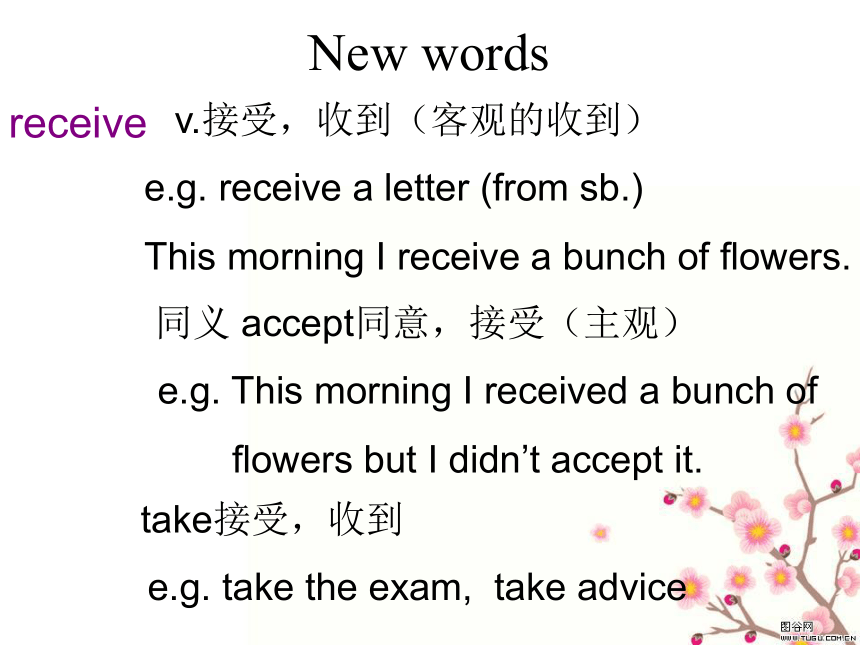
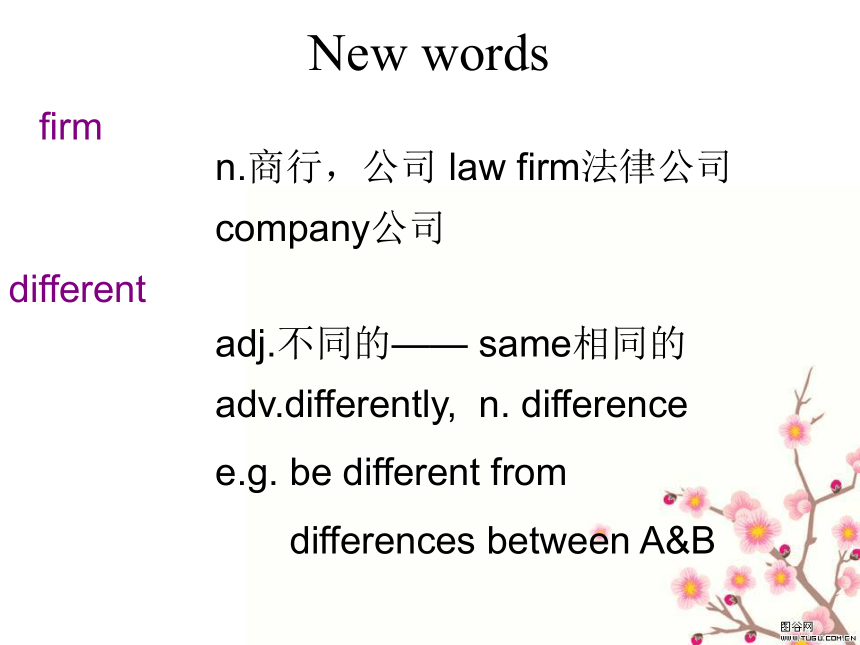
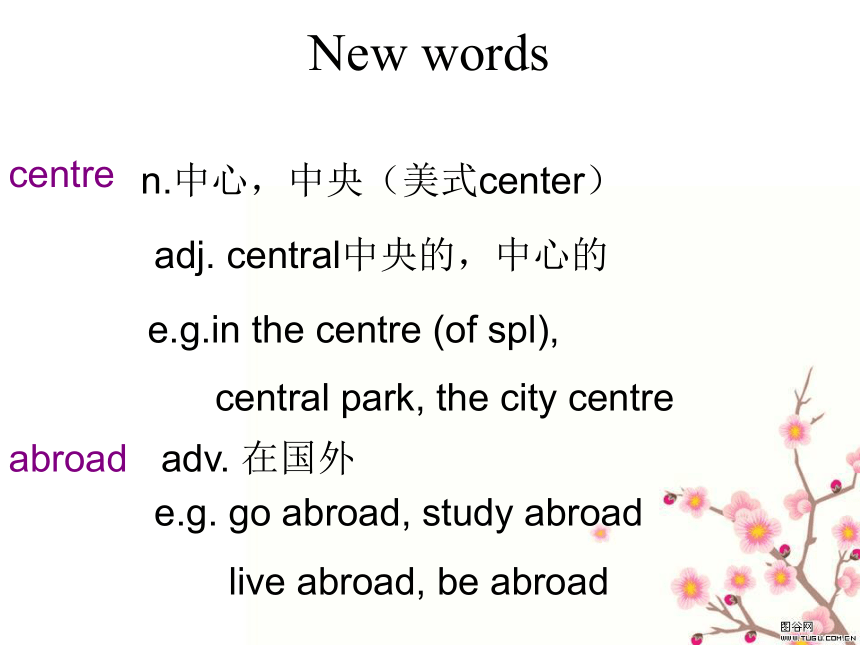
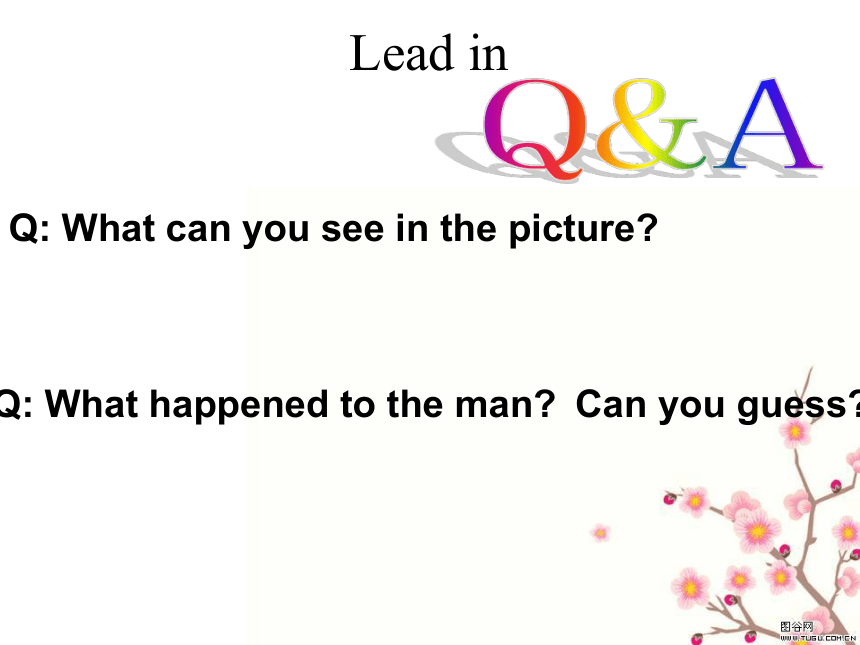

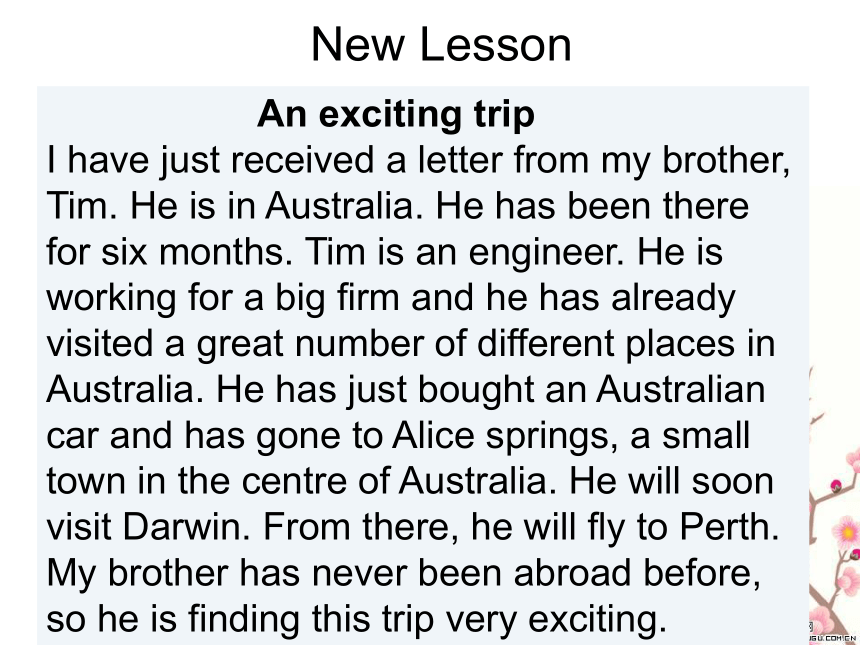
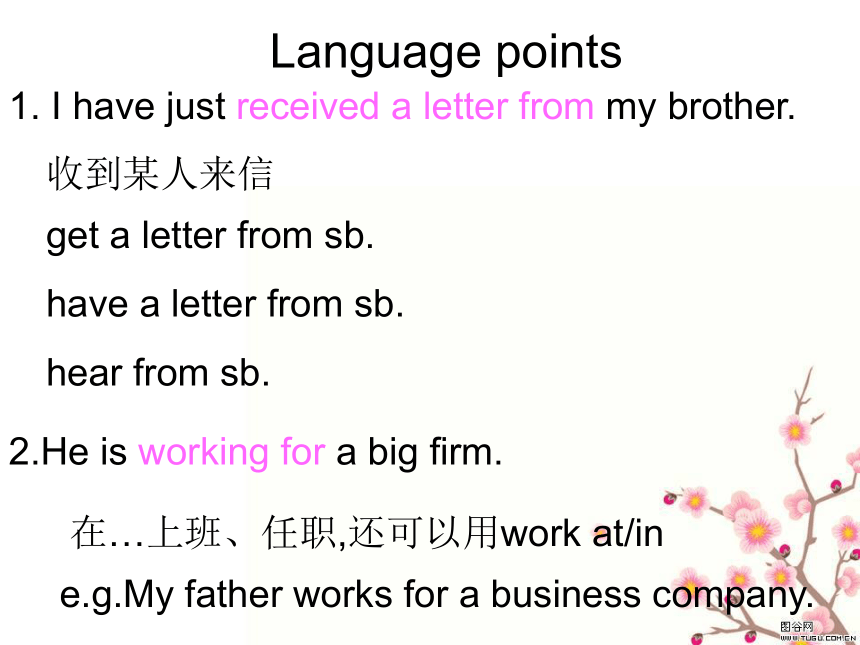
文档简介
(共32张PPT)
NCE-2
New Concept English
Lesson 4
An exciting trip
I.Key words
exciting, receive, firm, different…
II.Key structures
The present perfect simple现在完成时
key points
Revision
寄,送
明信片
损坏
博物馆
公共的
友好的
服务员
借给
决定
整个的
唯一的
send
postcard
spoil
spoilt/spoiled
museum
public
friendly
waiter
lend
decision
whole
single
Postcards always _____ my holidays. Last summer, I went to _____. I _____ museums and sat in ______ gardens. A _____ waiter taught me a few words of ______. Then he _____ me a book. I read a ______ lines, but I did not _______ a word. Every day I _____ ______ my postcards. My holidays passed ________, but I did not ______ cards to my friends. _____ the last day I ______ a big _______. I got up _____ and ______ thirty-seven cards. I _______ the _______ day in my room, _____ I did not write a _______ card!
spoil
Italy
visited
public
friendly
Italian
lent
few
understand
thought
about
quickly
send
On
made
decision
early
bought
spent
whole
but
single
Revision
New words
exciting
adj. 令人兴奋的(修饰事物)
excited 感到兴奋的(修饰人)
-ed自己感到 interested, bored, relaxed
-ing令人感到interesting,boring,relaxing
e.g. I am interested in this book.
This is an interesting book.
v.接受,收到(客观的收到)
e.g. receive a letter (from sb.)
This morning I receive a bunch of flowers.
同义 accept同意,接受(主观)
e.g. This morning I received a bunch of
flowers but I didn’t accept it.
receive
take接受,收到
e.g. take the exam, take advice
New words
New words
firm
n.商行,公司 law firm法律公司
company公司
different
adj.不同的—— same相同的
adv.differently, n. difference
e.g. be different from
differences between A&B
New words
centre
n.中心,中央(美式center)
adj. central中央的,中心的
e.g.in the centre (of spl),
central park, the city centre
abroad
adv. 在国外
e.g. go abroad, study abroad
live abroad, be abroad
Q: What can you see in the picture
Lead in
Q: What happened to the man Can you guess
1. How long has Tim been in Australia
Listen and answer the question.
New Lesson
Tim has been in Australia for six months.
2. What does he do in Australia
He is working for a big firm as an engineer.
3. Why is Tim finding the trip exciting
Because Tim has never been abroad before. This is his first trip abroad.
New Lesson
An exciting trip I have just received a letter from my brother, Tim. He is in Australia. He has been there for six months. Tim is an engineer. He is working for a big firm and he has already visited a great number of different places in Australia. He has just bought an Australian car and has gone to Alice springs, a small town in the centre of Australia. He will soon visit Darwin. From there, he will fly to Perth. My brother has never been abroad before, so he is finding this trip very exciting.
Language points
1. I have just received a letter from my brother.
收到某人来信
2.He is working for a big firm.
get a letter from sb.
have a letter from sb.
hear from sb.
在…上班、任职,还可以用work at/in
e.g.My father works for a business company.
3. he has already visited a great number of
different places in Australia.
a number of+可数名词的复数,number前一般
可用large, great, small等形容词强调数量大小。
a great many of + 可数名词
a great amount of + 不可数名词
Language points
4. He has just bought an Australian car and has
gone to Alice springs.
He has gone to the south.(还在)
He has been to the south.(去过)
5. He is finding this trip very exciting.
find+n+adj.觉得…怎么样
e.g.I find the film disppointing.
Do you find the book very interesting
Summary writing
Answer these questions in not more than 50 words.
What has the writer just received from his brother
2. Is Tim an engineer, or is he a doctor
3. How long has he been in Australia
4. Has he already visited many places or not
5. Where is he now
6. Has Tim ever been abroad before or not
7. Is he enjoying his trip very much or not
Summary writing
The writer has just received a letter from his brother, Tim. Tim is an engineer. He has been in Australia for six months. He has already visited many places. Now he is in Alice Springs. Tim has never been abroad before. He is enjoying his trip very much.
现在完成时态
Winter
has already come.
Grammar
现在完成时的构成形式
have
done
has
助动词
过去分词
Grammar
用来表示之前已经发生或完成的动作或状态,而其结果却和现在有联系: 动作或状态发生在过去,但它的影响现在还存在。
They have left.
--他们已经离开了,也就是说现在他们人不在这里
I have had my lunch.
--我已经吃过午饭了,也就是说我现在不饿
现在完成时的含义
也可表示持续到现在的动作或状态。
He has learned English since 2001.
--从2001年开始学的,现在还在继续学着呢
now
past
future
一般过去时
一般过去时表示的是纯粹在过去发生的事情
现在完成时表示的是在过去某个时间开始并持续到现在的动作/状态,或者发生在过去却对现在造成的影响
Grammar
现在完成时与一般过去时的比较
1)一般过去时表示过去某时发生的动作或单纯叙述过去的事情,强调动作;
现在完成时为过去发生的,强调过去的事情对现在的影响,强调的是影响。
I saw this film yesterday.
(强调看的动作发生过了。)
I have seen this film. (强调对现在的影响,电影的内容已经知道了。)
2一般过去时常与具体的表示过去的时间状语连用;
现在完成时通常与模糊时间状语连用或无时间状语。
一般过去时的时间状语: yesterday, last week,…ago, in1990, in October, just now, …-- 具体的时间状语 现在完成时的时间状语: for, since, so far, ever, never, just, yet, till/until, up to now, in the past few years, recently, … --模糊的时间状语
句子中如有过去时的时间副词(如 yesterday, last, week, in 1960)时,不能使用现在完成时,要用过去时
错Tom has written a letter to his parents last night.
对Tom wrote a letter to his parents last night.
Grammar
3现在完成时可表示持续到现在的动作或状态,动词一般是延续性的,如live,teach,learn,work,study, know. 一般过去时常用的非持续性动词有come, go, leave, start, die, finish, become, get married等。
She joined the League three years ago.
(加入的动作不是延续的)
She has been in the League for three years (since three years ago).(在团内的状态可延续)
She has been a League member for three years (since three years ago).(是团员的状态可持续)
Grammar
延续动词表示经验、经历;
瞬间动词表示行为的结果,不能与表示一段
时间的状语连用。
比较延续动词与瞬间动词
He has finished the work.他已完成了那项工作。 (表结果) I’ve known him since then.我从那时起就认识他了。(表经历)
Grammar
since 用来说明动作起始时间— “自从……”
for用来说明动作延续时间长度— “长达……”
I have lived here for more than twenty years. I have lived here since I was born. My aunt has worked in a company since 1949. I have not heard from my uncle for a long time.
比较since和for
并非有for 作为时间状语的句子都用现在完成时
I worked here for more than twenty years. (我现在已不在这里工作。)
I have worked here for many years. (现在我仍在这里工作。)
Grammar
He has gone to Shanghai.
他(已经)去上海了。
He has been to Shanghai.
他(曾经) 去过上海。
比较 have/has been to , have/has gone to
Grammar
He died 10 years ago.
--- He ____ ____ ____ for 10 years / since 10 years ago.
2. He borrowed the book 2 weeks ago.
--- He ____ ____ the book for 2 weeks.
3. He bought the motorbike a month ago.
---He ____ ____ the motorbike for a month.
4. He arrived here three days ago.
--- He ____ ____ here since three days ago.
5. They turned off the light 2 hours ago.
--- The light ____ ____ ____ for 2 hours.
6. He left here 2 years ago.
--- He ____ ____ ____ from here for 2 years.
7. The film began 30 minutes ago.
--- The film ____ ____ ____ for 30 minutes.
8. They opened the door an hour ago.
--- The door ____ ____ ____ for an hour.
9. They closed the door an hour ago.
--- The door ____ ____ ____ for an hour.
10. He joined the army last year.
--- He ____ ____ a ____ for a year.
--- He ____ ____ ____ the army for a year.
--- It ____ a year ____ he joined the army.
延续性动词和瞬间性动词之间的转化
Exercise
sum up
一、现在完成时
1)构成
肯定句:主语+have/has+过去分词+其它
否定句:主语+have/has not+过去分词+其它
疑问句:Have/Has+主语+过去分词+其它
He has been to Australia.
He has not been to Australia.
Has he been to Australia
sum up
2)用法
1.过去发生的动作对现在的影响或产生的结果。常与表示时间的副词连用,如yet, just, before, recently, ever, never等。
e.g. We have just won the match.
I have never been to Australia before.
一、现在完成时
sum up
2)用法
1.表示从过去开始延续到现在的动作或状态,常与表示一段时间的时间状态连用,如so far, up till now, since, for a long time, in the past few years, those days等。
e.g. So far, he has broken two world records.
I have worked here for four years.
一、现在完成时
sum up
2)用法
3.短暂性动词在现在完成时中不能与表示一段时间的状语连用,常见的动词有die, arrive, leave, go, refuse, finish, marry, buy等。
e.g. His grandfather has died for three years.
His grandfather has been dead for three years.
I have bought the car for half a year.
I have got the car for half a year.
一、现在完成时
Thank you!
NCE-2
New Concept English
Lesson 4
An exciting trip
I.Key words
exciting, receive, firm, different…
II.Key structures
The present perfect simple现在完成时
key points
Revision
寄,送
明信片
损坏
博物馆
公共的
友好的
服务员
借给
决定
整个的
唯一的
send
postcard
spoil
spoilt/spoiled
museum
public
friendly
waiter
lend
decision
whole
single
Postcards always _____ my holidays. Last summer, I went to _____. I _____ museums and sat in ______ gardens. A _____ waiter taught me a few words of ______. Then he _____ me a book. I read a ______ lines, but I did not _______ a word. Every day I _____ ______ my postcards. My holidays passed ________, but I did not ______ cards to my friends. _____ the last day I ______ a big _______. I got up _____ and ______ thirty-seven cards. I _______ the _______ day in my room, _____ I did not write a _______ card!
spoil
Italy
visited
public
friendly
Italian
lent
few
understand
thought
about
quickly
send
On
made
decision
early
bought
spent
whole
but
single
Revision
New words
exciting
adj. 令人兴奋的(修饰事物)
excited 感到兴奋的(修饰人)
-ed自己感到 interested, bored, relaxed
-ing令人感到interesting,boring,relaxing
e.g. I am interested in this book.
This is an interesting book.
v.接受,收到(客观的收到)
e.g. receive a letter (from sb.)
This morning I receive a bunch of flowers.
同义 accept同意,接受(主观)
e.g. This morning I received a bunch of
flowers but I didn’t accept it.
receive
take接受,收到
e.g. take the exam, take advice
New words
New words
firm
n.商行,公司 law firm法律公司
company公司
different
adj.不同的—— same相同的
adv.differently, n. difference
e.g. be different from
differences between A&B
New words
centre
n.中心,中央(美式center)
adj. central中央的,中心的
e.g.in the centre (of spl),
central park, the city centre
abroad
adv. 在国外
e.g. go abroad, study abroad
live abroad, be abroad
Q: What can you see in the picture
Lead in
Q: What happened to the man Can you guess
1. How long has Tim been in Australia
Listen and answer the question.
New Lesson
Tim has been in Australia for six months.
2. What does he do in Australia
He is working for a big firm as an engineer.
3. Why is Tim finding the trip exciting
Because Tim has never been abroad before. This is his first trip abroad.
New Lesson
An exciting trip I have just received a letter from my brother, Tim. He is in Australia. He has been there for six months. Tim is an engineer. He is working for a big firm and he has already visited a great number of different places in Australia. He has just bought an Australian car and has gone to Alice springs, a small town in the centre of Australia. He will soon visit Darwin. From there, he will fly to Perth. My brother has never been abroad before, so he is finding this trip very exciting.
Language points
1. I have just received a letter from my brother.
收到某人来信
2.He is working for a big firm.
get a letter from sb.
have a letter from sb.
hear from sb.
在…上班、任职,还可以用work at/in
e.g.My father works for a business company.
3. he has already visited a great number of
different places in Australia.
a number of+可数名词的复数,number前一般
可用large, great, small等形容词强调数量大小。
a great many of + 可数名词
a great amount of + 不可数名词
Language points
4. He has just bought an Australian car and has
gone to Alice springs.
He has gone to the south.(还在)
He has been to the south.(去过)
5. He is finding this trip very exciting.
find+n+adj.觉得…怎么样
e.g.I find the film disppointing.
Do you find the book very interesting
Summary writing
Answer these questions in not more than 50 words.
What has the writer just received from his brother
2. Is Tim an engineer, or is he a doctor
3. How long has he been in Australia
4. Has he already visited many places or not
5. Where is he now
6. Has Tim ever been abroad before or not
7. Is he enjoying his trip very much or not
Summary writing
The writer has just received a letter from his brother, Tim. Tim is an engineer. He has been in Australia for six months. He has already visited many places. Now he is in Alice Springs. Tim has never been abroad before. He is enjoying his trip very much.
现在完成时态
Winter
has already come.
Grammar
现在完成时的构成形式
have
done
has
助动词
过去分词
Grammar
用来表示之前已经发生或完成的动作或状态,而其结果却和现在有联系: 动作或状态发生在过去,但它的影响现在还存在。
They have left.
--他们已经离开了,也就是说现在他们人不在这里
I have had my lunch.
--我已经吃过午饭了,也就是说我现在不饿
现在完成时的含义
也可表示持续到现在的动作或状态。
He has learned English since 2001.
--从2001年开始学的,现在还在继续学着呢
now
past
future
一般过去时
一般过去时表示的是纯粹在过去发生的事情
现在完成时表示的是在过去某个时间开始并持续到现在的动作/状态,或者发生在过去却对现在造成的影响
Grammar
现在完成时与一般过去时的比较
1)一般过去时表示过去某时发生的动作或单纯叙述过去的事情,强调动作;
现在完成时为过去发生的,强调过去的事情对现在的影响,强调的是影响。
I saw this film yesterday.
(强调看的动作发生过了。)
I have seen this film. (强调对现在的影响,电影的内容已经知道了。)
2一般过去时常与具体的表示过去的时间状语连用;
现在完成时通常与模糊时间状语连用或无时间状语。
一般过去时的时间状语: yesterday, last week,…ago, in1990, in October, just now, …-- 具体的时间状语 现在完成时的时间状语: for, since, so far, ever, never, just, yet, till/until, up to now, in the past few years, recently, … --模糊的时间状语
句子中如有过去时的时间副词(如 yesterday, last, week, in 1960)时,不能使用现在完成时,要用过去时
错Tom has written a letter to his parents last night.
对Tom wrote a letter to his parents last night.
Grammar
3现在完成时可表示持续到现在的动作或状态,动词一般是延续性的,如live,teach,learn,work,study, know. 一般过去时常用的非持续性动词有come, go, leave, start, die, finish, become, get married等。
She joined the League three years ago.
(加入的动作不是延续的)
She has been in the League for three years (since three years ago).(在团内的状态可延续)
She has been a League member for three years (since three years ago).(是团员的状态可持续)
Grammar
延续动词表示经验、经历;
瞬间动词表示行为的结果,不能与表示一段
时间的状语连用。
比较延续动词与瞬间动词
He has finished the work.他已完成了那项工作。 (表结果) I’ve known him since then.我从那时起就认识他了。(表经历)
Grammar
since 用来说明动作起始时间— “自从……”
for用来说明动作延续时间长度— “长达……”
I have lived here for more than twenty years. I have lived here since I was born. My aunt has worked in a company since 1949. I have not heard from my uncle for a long time.
比较since和for
并非有for 作为时间状语的句子都用现在完成时
I worked here for more than twenty years. (我现在已不在这里工作。)
I have worked here for many years. (现在我仍在这里工作。)
Grammar
He has gone to Shanghai.
他(已经)去上海了。
He has been to Shanghai.
他(曾经) 去过上海。
比较 have/has been to , have/has gone to
Grammar
He died 10 years ago.
--- He ____ ____ ____ for 10 years / since 10 years ago.
2. He borrowed the book 2 weeks ago.
--- He ____ ____ the book for 2 weeks.
3. He bought the motorbike a month ago.
---He ____ ____ the motorbike for a month.
4. He arrived here three days ago.
--- He ____ ____ here since three days ago.
5. They turned off the light 2 hours ago.
--- The light ____ ____ ____ for 2 hours.
6. He left here 2 years ago.
--- He ____ ____ ____ from here for 2 years.
7. The film began 30 minutes ago.
--- The film ____ ____ ____ for 30 minutes.
8. They opened the door an hour ago.
--- The door ____ ____ ____ for an hour.
9. They closed the door an hour ago.
--- The door ____ ____ ____ for an hour.
10. He joined the army last year.
--- He ____ ____ a ____ for a year.
--- He ____ ____ ____ the army for a year.
--- It ____ a year ____ he joined the army.
延续性动词和瞬间性动词之间的转化
Exercise
sum up
一、现在完成时
1)构成
肯定句:主语+have/has+过去分词+其它
否定句:主语+have/has not+过去分词+其它
疑问句:Have/Has+主语+过去分词+其它
He has been to Australia.
He has not been to Australia.
Has he been to Australia
sum up
2)用法
1.过去发生的动作对现在的影响或产生的结果。常与表示时间的副词连用,如yet, just, before, recently, ever, never等。
e.g. We have just won the match.
I have never been to Australia before.
一、现在完成时
sum up
2)用法
1.表示从过去开始延续到现在的动作或状态,常与表示一段时间的时间状态连用,如so far, up till now, since, for a long time, in the past few years, those days等。
e.g. So far, he has broken two world records.
I have worked here for four years.
一、现在完成时
sum up
2)用法
3.短暂性动词在现在完成时中不能与表示一段时间的状语连用,常见的动词有die, arrive, leave, go, refuse, finish, marry, buy等。
e.g. His grandfather has died for three years.
His grandfather has been dead for three years.
I have bought the car for half a year.
I have got the car for half a year.
一、现在完成时
Thank you!
同课章节目录
